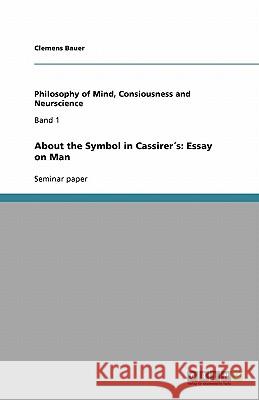About the Symbol in Cassirer s: Essay on Man » książka
About the Symbol in Cassirer s: Essay on Man
ISBN-13: 9783640839889 / Angielski / Miękka / 2011 / 40 str.
Seminar paper from the year 2006 in the subject Philosophy - Philosophy of the Present, grade: 1,7, University of Osnabruck, course: Philosophie, language: English, abstract: Seeing shadows like the prisoners in the cave of Plato's simile1, that's what life of man would be like if he had not the symbol. Without symbols, mans life would be confined within the limits of his biological needs and his practical interests, thus not differentiating himself from other species2. In his "Essay on Man," Ernst Cassirer examines man's efforts to understand himself and to deal with the problems of his universe through a creation and use of symbols. He analyzes the major symbolic forms of human enterprise: Language, Myth, Art, Religion, History, and Science. He discusses these subjects with the help of great thinkers of all times, making annotations on what, in each moment, these persons thought. He explains the point of view of Philosophers, Biologists, Naturalists, Physicists etc, and interprets them in a very unique way, to make the reader understand his point. He goes from Heraclitus to Kierkegaard and Einstein. This essay is a good synthesis of the ability of man to resolve human problems by the simple use of his mind through symbols.3 I have chosen three chapters that caught my attention. I will synthesize what for me is a symbol by looking into chapter II, "A clue to the nature of man: the Symbol" and chapter III, "From animal reactions to human responses." ...] 1 Cassirer, Essay on Man. P 41 2 idem. P. 41 3 Cassirer, Essay on Man, back review.











